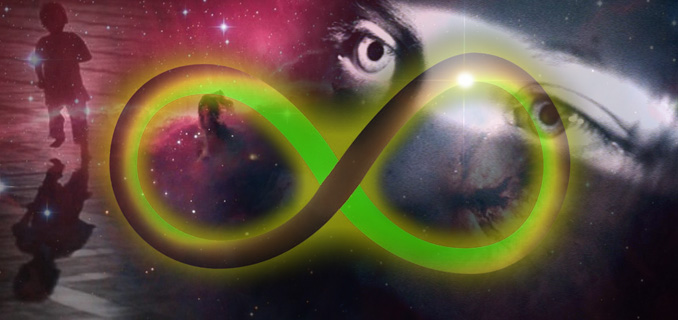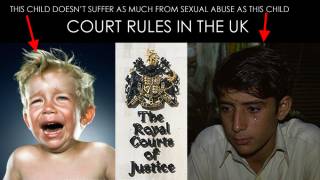Children Speak on Life Before Life, and Immortality - Could We Be Hardwired to Believe?
Source: sciencedaily.com

Belief in immortality hard-wired? Study examines development of children’s ’prelife’ reasoning
By examining children’s ideas about "prelife," the time before conception, researchers found results which suggest that our bias toward immortality is a part of human intuition that naturally emerges early in life. And the part of us that is eternal, we believe, is not our skills or ability to reason, but rather our hopes, desires and emotions.
Most people, regardless of race, religion or culture, believe they are immortal. That is, people believe that part of themselves-some indelible core, soul or essence-will transcend the body’s death and live forever. But what is this essence? Why do we believe it survives? And why is this belief so unshakable?
A new Boston University study led by postdoctoral fellow Natalie Emmons and published in the January 16, 2014 online edition of Child Development sheds light on these profound questions by examining children’s ideas about "prelife," the time before conception. By interviewing 283 children from two distinct cultures in Ecuador, Emmons’s research suggests that our bias toward immortality is a part of human intuition that naturally emerges early in life. And the part of us that is eternal, we believe, is not our skills or ability to reason, but rather our hopes, desires and emotions. We are, in fact, what we feel.
Emmons’ study fits into a growing body of work examining the cognitive roots of religion. Although religion is a dominant force across cultures, science has made little headway in examining whether religious belief-such as the human tendency to believe in a creator-may actually be hard-wired into our brains.
"This work shows that it’s possible for science to study religious belief," said Deborah Kelemen, an Associate Professor of Psychology at Boston University and co-author of the paper. "At the same time, it helps us understand some universal aspects of human cognition and the structure of the mind."
Most studies on immortality or "eternalist" beliefs have focused on people’s views of the afterlife. Studies have found that both children and adults believe that bodily needs, such as hunger and thirst, end when people die, but mental capacities, such as thinking or feeling sad, continue in some form. But these afterlife studies leave one critical question unanswered: where do these beliefs come from? Researchers have long suspected that people develop ideas about the afterlife through cultural exposure, like television or movies, or through religious instruction. But perhaps, thought Emmons, these ideas of immortality actually emerge from our intuition. Just as children learn to talk without formal instruction, maybe they also intuit that part of their mind could exist apart from their body.
Emmons tackled this question by focusing on "prelife," the period before conception, since few cultures have beliefs or views on the subject. "By focusing on prelife, we could see if culture causes these beliefs to appear, or if they appear spontaneously," said Emmons.
"I think it’s a brilliant idea," said Paul Bloom, a Professor of Psychology and Cognitive Science at Yale who was not involved with the study. "One persistent belief is that children learn these ideas through school or church. That’s what makes the prelife research so cool. It’s a very clever way to get at children’s beliefs on a topic where they aren’t given answers ahead of time."
Emmons interviewed children from an indigenous Shuar village in the Amazon Basin of Ecuador. She chose the group because they have no cultural prelife beliefs, and she suspected that indigenous children, who have regular exposure to birth and death through hunting and farming, would have a more rational, biologically-based view of the time before they were conceived. For comparison, she also interviewed children from an urban area near Quito, Ecuador. Most of the urban children were Roman Catholic, a religion that teaches that life begins only at conception. If cultural influences were paramount, reasoned Emmons, both urban and indigenous children should reject the idea of life before birth.
Emmons showed the children drawings of a baby, a young woman, and the same woman while pregnant, then asked a series of questions about the child’s abilities, thoughts and emotions during each period: as babies, in the womb, and before conception.
The results were surprising. Both groups gave remarkably similar answers, despite their radically different cultures. The children reasoned that their bodies didn’t exist before birth, and that they didn’t have the ability to think or remember. However, both groups also said that their emotions and desires existed before they were born. For example, while children generally reported that they didn’t have eyes and couldn’t see things before birth, they often reported being happy that they would soon meet their mother, or sad that they were apart from their family.
"They didn’t even realize they were contradicting themselves," said Emmons. "Even kids who had biological knowledge about reproduction still seemed to think that they had existed in some sort of eternal form. And that form really seemed to be about emotions and desires."
[...]
Read the full article at: sciencedaily.com
Tune into Red Ice Radio:
Sonia Barrett - Immortality and the Quest for Eternal Life
Peter Smith - Past Life, Life Between Lives Regression, Life Selection & Soul Destiny
Penney Peirce - Hour 1 - Leap of Perception
Tom Campbell - The Big TOE (Theory of Everything), Consciousness & Reality
Anthony Peake & Tom Campbell - Consciousness Creates Reality
Anthony Peake - Mystery of the Brain, Precognition, Time Dilation & Déjà vu
Gary Schwartz - Communication With the Deceased, Life After Death & The Soul Phone
Peter Russell - The Primacy of Consciousness
Jim Elvidge - Are we Living in a Simulation, a Programmed Reality?
Paul Levy - The War on Consciousness
Marcel Kuijsten - Julian Jaynes, the Bicameral Mind & The Origin of Consciousness
Graham Hancock - Entangled, Supernatural, Shamanism & The Origins of Consciousness






















